Friday Feb 20, 2026
Friday Feb 20, 2026
Monday, 24 July 2023 00:35 - - {{hitsCtrl.values.hits}}
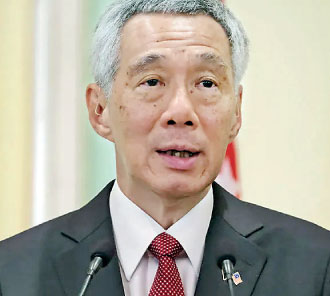
Singapore PM Lee Hsien Loong
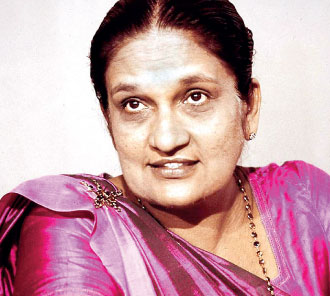
Sirimavo Bandaranaike
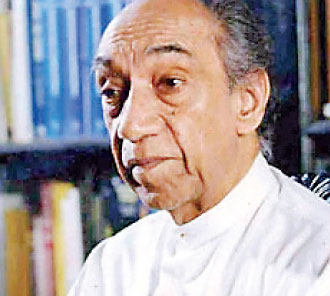
J.R. Jayewardene
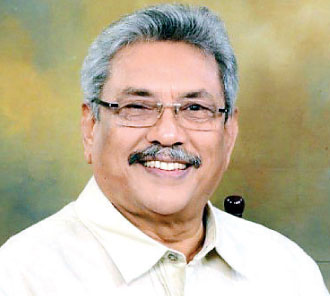
Gotabaya Rajapaksa
|
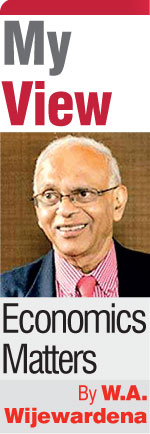 Arguing for authoritarianism
Arguing for authoritarianism
The first article in this series on making Sri Lanka a rich country by 2048, dubbed Target 2048, arguing for a democratic leadership rather than an authoritarian leadership has been disputed by some readers. The points raised by them have been two-fold.
Some have questioned which country has gained sustainable development through democracy. According to them, it has come from centralised leadership that has caused resource allocation toward continuous economic advancement rather than getting people to decide the same as it happens in a democratic regime. Another argument made is that democracy may work in Western developed countries but in emerging or developing Asian countries it is authoritarianism that has worked.
A few success cases cited by them are the rapid economic advancement in Singapore, Taiwan, and South Korea after 1960s and China today. According to them, all these countries have become rich countries within a single generation due to an authoritarian centralised leadership which they had in the initial phase of economic advancement. Hence, they have argued that the proposition which Sri Lanka should follow the democratic path as advocated by former head of the Reserve Bank of India, Raghuram Rajan, to earn trust from the global supply chain partners is clearly a mis-strategy for Sri Lanka.
Buddhist monks canvassing for authoritarianism
These arguments seem to have stemmed from the misidentification of the firm responsive leadership that is needed with dictatorial authoritarian leadership which is being advocated for Sri Lanka’s top political leaders and practiced by many failed African countries. In late 1960s, the latter type of an authoritarian rule was advocated for Sri Lanka by Rajakeeya Pandita Ven Henapitagedara Gnanaseeha Thero by publishing a booklet on Dictatorship. I have outlined the key points presented by this erudite Buddhist monk in support of his advocacy and the fallacy of those arguments in a previous article available at https://www.colombotelegraph.com/index.php/authoritarian-regime-for-economic-prosperity/. Ceylon, as Sri Lanka was called at that time, had a frustrating experience since independence due to its failure to deliver prosperity to citizens. This had been diagnosed by the erudite monk as a failure of the democratic system of government. Democratic leaders are soft, and he had argued for a tough leadership. Such a leader could push the otherwise lazy Sri Lankans to work harder and create a bigger wealth for the nation.
Politicians burning their fingers acting ‘authoritarian’
In fact, Sirimavo Bandaranaike who came to power in 1970 with a two-third majority followed this advice to the letter; she ran the country under emergency laws, postponed elections, and used draconian laws like the Criminal Justice Commission Law to put her political opponents behind bars. The same was followed by J.R. Jayewardene who got a four-fifth majority in Parliament. During Sirimavo’s time, the country went backward and during JR’s time, the progress achieved was not adequate despite the authoritarian policies adopted.
Then in 2018 Gotabaya Rajapaksa who was aspiring to be the President of the Republic was also advised by a leading Buddhist monk that he should perform his role as the President like Adolf Hitler who had a dictatorial rule under his Nazi regime (see: https://www.ft.lk/columns/The-killing-of-the-leopard-and-call-for-the-return-of-a-Hitler/4-658169). Gotabaya also followed it to the letter pronouncing that his word is the law. The economy did not progress but ended up in an average negative growth of 2.7% during 2020 to 2022. The year 2023 is also expected to cause the economy to shrink by about 3%. Hence, advocating authoritarianism even for Sri Lanka should be done after a careful evaluation of achievements and failures alike.
The misquoted Singapore experiment
Hence, what contributes to continued economic advancement is not a mere authoritarian rule but a firm responsive leadership. This was how Singapore prospered under Lee Kuan Yew as well as under subsequent leaders. Lee’s final advice to fellow Parliamentarians, as disclosed by the present PM Lee Hsien Loong, was that they should never ever allow the system to be corrupted. Following this advice, recently the junior Lee sacked his transport minister S. Iswaran on charges of corruption and authorised a full inquiry into the charge by the country’s Corrupt Practices Investigation Bureau or CPIB. Later in the week, he had a press conference at which he disclosed that the Speaker of the Singaporean Parliament and another lady MP of his party had been asked to vacate their posts since they had continued to violate the high moral and ethical standards prescribed by People’s Action Party to its members (visit: https://www.youtube.com/watch?v=cgolnwdcyWo).
|
A PM adopting the set decorum
This press conference which has been conducted by following all the decorum that should be adopted by a head of a state when meeting the press is an example for all of us. It was brief and to the point. He was so gentle in his approach to the press that he even requested the press as well as the Singaporeans to respect the privacy of the two people in question and not to publish anything that would be anguishing to the family members. He was asked as usual embarrassing and annoying questions by press members. But he did not choose to counterattack them or ridicule their stature by raising counterquestions. Instead, he explained everything soberly following the standards of giving out information without losing his composure or balance in speaking.
This approach was in line with what Emperor Asoka had dictated in one of his rock inscriptions that in a debate or disputation, the opponents should be treated with respect and honour on all occasions. This quality is an attribute that is absent among other third world leaders. What is missing among them is that the leaders are third world, people are third world, beliefs and values are third world, and institutional structure is third world. Yet they try to become first world countries by using these third world apparatuses.
Even though the PM of Singapore is usually categorised as an authoritarian ruler, what he displayed here was firmness, fairness, and responsiveness to the people. Again and again, he emphasised that he is answerable to fellow Singaporeans. In Singapore and in other authoritarian rich countries in Southeast Asia, there is no trust deficit between people and rulers. In third world countries like Sri Lanka, there is a massive trust deficit present in everything which rulers say and do. As long as this trust deficit is there, these nations cannot attain sustained economic advancement.
|
Lessons from the past
I recall that when I was doing my advanced level exam in mid-1960s, I used to read the Hansard of parliamentary debates to build English vocabulary, debating styles, and issues that are debated in Parliament on behalf of citizens. The politicians of that era like N.M. Perera, Colvin R. de Silva, Phillip Gunawardena, W. Dahanayake, and Dudley Senanayake, to mention but a few, spoke in Parliament in English. They were not interrupted by those politicians opposed to them with hoots, catcalls, obscene utterings, and unparliamentary terms as it is happening today. If an unparliamentary word was uttered by any member, he was instantly reprimanded by the Speaker followed by a similar reprimand by the party leader. Singapore still follows this tradition.
As Prime Minister Lee revealed in the press conference under reference, one reason for asking the speaker to step down was his yelling at a fellow MP with an unparliamentary uttering. A speech by NM or Colvin were so well-researched that it was like following a course of lectures at a university when one reads their speeches in Parliament. Sri Lanka has already lost this value system and if there is an authoritarian ruler or a ‘Hitler’ in power as claimed by analysts, things will go from bad to worst in Sri Lanka.
Asking lottery winners about being successful
The claim that authoritarian rules have been successful in continued economic advancement does not reckon the failed cases in that regard. Economists call this confirmation bias and availability bias. In the case of confirmation bias, one looks only at the evidence that will confirm his already established false view. In the latter, one looks for only the available evidence ignoring the vast volume of evidence to the contrary. This was explained by MIT economist Yasheng Huang in a TED (Technology, Entertainment, and Design) lecture delivered in June 2011.
According to him, China which is said to be an authoritarian state is also a democratic state because it conducts regular elections according to its own yardsticks. He argued that those who quote the success stories of the four Asian tigers, namely, Singapore, Taiwan, Hong Kong, and South Korea, have ignored more numerous failures with authoritarian regimes in Asia, Africa and Latin America (available at: https://www.youtube.com/watch?v=UR-uWwvpn5c). Yasheng says that they make the mistake of asking only the winners of lotteries whether people win lotteries; the answer invariably is yes and you make the mistaken judgment that 100% of people win lotteries whereas there thousands more who have not won lotteries.
Even with regard to India, prior to 1990s when India had an authoritarian rule under Indira Gandhi and her son Rajiv Gandhi, India’s growth rate was equal to what is known as the ‘Hindu Rate of Growth’ at 2 to 2.5%; since 1990 when India became more democratic having shed authoritarianism, its growth rate sprang phenomenally to above 7% per annum.
According to Yasheng, when China was under the dictatorial rule of Mao Tsetung, its growth rate was dismal. Though China is a one party system even today, it has its own system of democracy in which rulers are changed every 10 years and new rulers are appointed under the party rule after grooming them into leadership. Though this system differs from the Western system of democracy, it is a better consultative process than a pure authoritarian rule.
Authoritarianism: A license to rob
US based economists, Daron Acemoglu and James A. Robinson, have documented and analysed the economic origins of dictatorship and democracy in a 2006 book published under the same title. Having examined the political developments in Britain, Argentina, Singapore, and South Africa, they have set their agenda for the analysis distinguishing democracy from nondemocracy. In strong countries like the UK, the path to democracy was a straight development without any reversals in between. But in countries like Argentina, it was a mixed development, from democracy to nondemocracy and from nondemocracy to democracy and so forth. Hence, they could not have the best fruits of a democratic rule. Nondemocratic regimes use repression for survival, but democratic countries use the people’s mandate for the same.
Democracy in practice is associated with a set of institutions like free and fair elections conducted on schedule and regularly to test the mandate of people, accountability of the political leaders to the electorate as emphasised by PM Lee of Singapore when he sacked the Speaker and another MP from their positions and party, and possibilities for free entry to politics. If these are blocked as it is happening in Sri Lanka today, there is no prospect for the country to test the people’s mandate and usher for a prosperous era.
|
Supporters of authoritarianism and its victims
Then, the issue is why should anyone while enjoying democratic rights continue to praise nondemocratic regimes? That is because nondemocratic regimes redistribute the wealth in favour of those who support the regime to continue in power. Their beliefs, values, and ethos will become the dominant social institutions in society. Anyone opposing them will be severely dealt with under the new legal powers which they have acquired either through elections or through military coups. This was the folly made by Sirimavo during 1970-77 and JR during 1978-89.
In both cases, the respective political party they headed enjoying super majority in Parliament was reduced to a minority when the people expressed their verdict at elections. None of these parties could come to power without being affiliated to other parties in a coalition arrangement. But while they are in power, there is no dearth of support because they make it their business to redistribute the scarce wealth of the nation to their favour. Though economists call this inequitable wealth distribution, common man calls it ‘robbing the national wealth’ by a few. As long as this possibility is there, there is trust deficit in society.
The reaction by people is both direct and indirect. In the direct reaction, they either revolt against the rulers or choose to seek greener pasture beyond the shores. In the indirect reaction, they remain within the country but with subdued motivation to make new contribution. The direct reaction will lead to an explosion of the economy from outside. The indirect reaction will cause an implosion from within. Both are harmful for sustained economic advancement.
Hence, it is the responsibility of the wise political leaders to make strategies to avoid both.
That is the job of firm, consistent, and responsive political leaders. At the current stage of development considering the gravity of the issues faced, Sri Lanka needs such leaders very badly.

Part I of this article can be seen at https://www.ft.lk/columns/Target-2048-%E2%80%93-Part-I--It-is-democracy-and-not-authoritarianism-that-will-do-the-job/4-750676
(The writer, a former Deputy Governor of the Central Bank of Sri Lanka, can be reached at [email protected].)